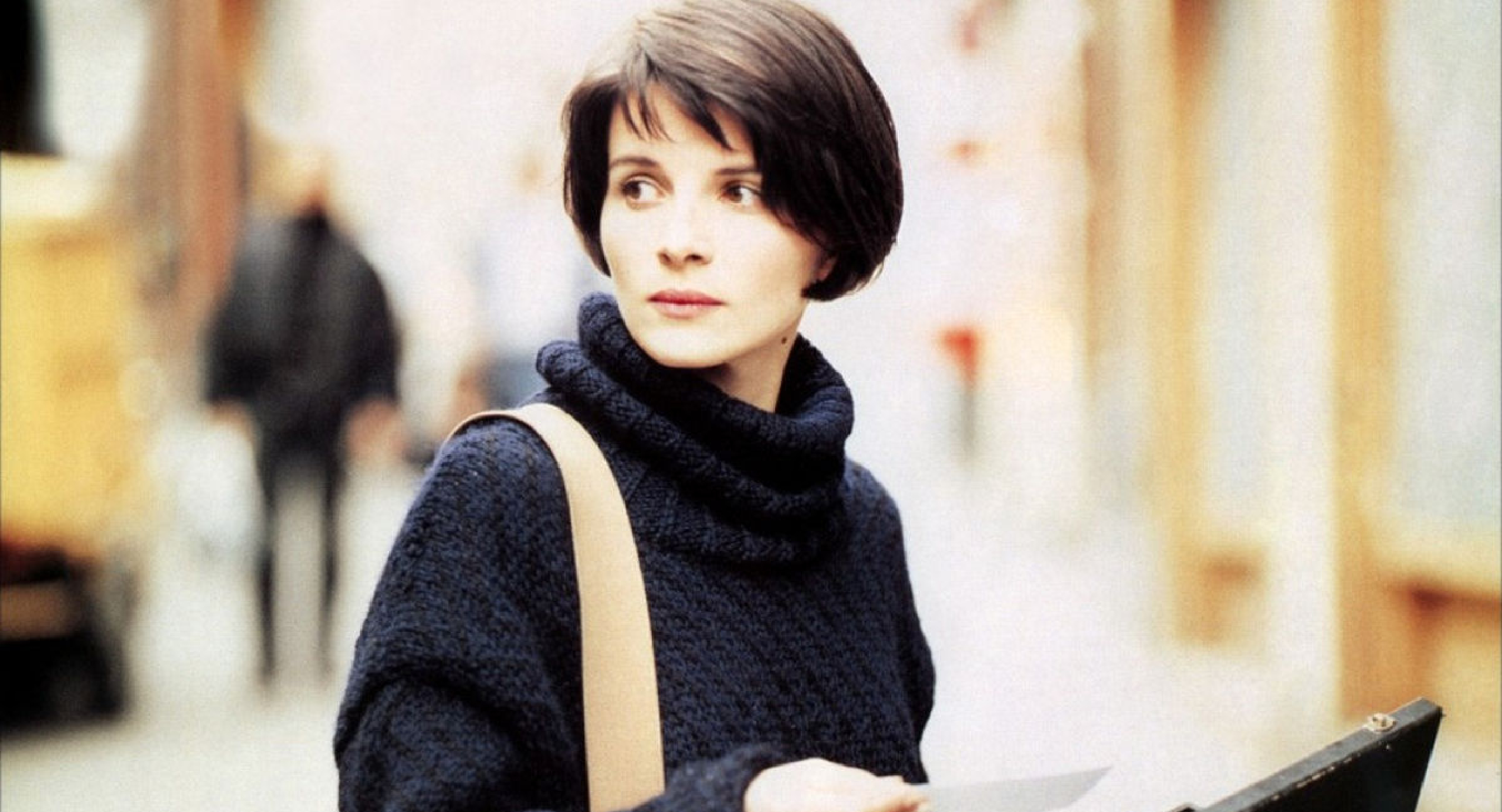Three Colors: Blue – Film Review
Published January 1, 2022

Julie (Juliette Binoche) is haunted by her grief after living through a tragic auto wreck that claimed the life of her composer husband and young daughter. Her initial reaction is to withdraw from her relationships, lock herself in her apartment and suppress her pain. But avoiding human interactions on the bustling streets of Paris proves impossible, and she eventually meets up with Olivier (Benoît Régent), an old friend who harbors a secret love for her, and who could draw her back to reality.
Have you ever watched a film that was technically masterful in every sense of the word, but left you feeling rather disappointed story-wise? That’s exactly how I feel about Krzysztof Kieślowski’s Three Colors: Blue. It features some true state-of-the-art cinematography by Sławomir Idziak and uses a wide variety of different blue hues to make the film feel incredibly cold and unwelcoming – which it does (in a very good way) – and Kieślowski’s direction is always solid. It’s just that the story is rather generic, but that doesn’t mean it’s bad.
I’ve been hearing about this movie in particular for quite some time because apparently, this whole trilogy is supposed to be a total masterpiece, so I’ll have to see how I feel about the other two but for a start, Three Colors: Blue didn’t knock my socks off. Throughout the course of the ninety-four minute running time, we spend a lot of time with our lead protagonist Julie de Courcy but, sadly, we don’t get to delve too deep into her psyche and who she is. The same thing can be said about Benoît Régent’s Olivier – he is always a charming presence whenever he’s on-screen, but we really don’t get to learn too much about him throughout the course of the story.
And I just couldn’t help but feel like certain scenes were lacking a bit more of a punch as if Kieślowski was holding a little something back. In a way, it’s positive and negative. It’s positive because it makes the film feel more meditative – we are able to simply ponder and take a glimpse at this woman’s life and her extreme predicament – and it always feels relaxing in a strange sort of way. But it’s also negative because it means the film never once has a scene of true awe and wonder where we gasp or smile from ear to ear when something gleeful happens.
Three Colors: Blue is definitely not a bad film whatsoever – I enjoyed myself for the most part, actually. I just wanted there to be a bit more to it rather than the simplistic, relaxing approach we ended up getting. Krzysztof Kieślowski’s directing style is superb, and all of the actors brought their A-game – especially Juliette Binoche – resulting in a satisfying if occasionally dull story.
